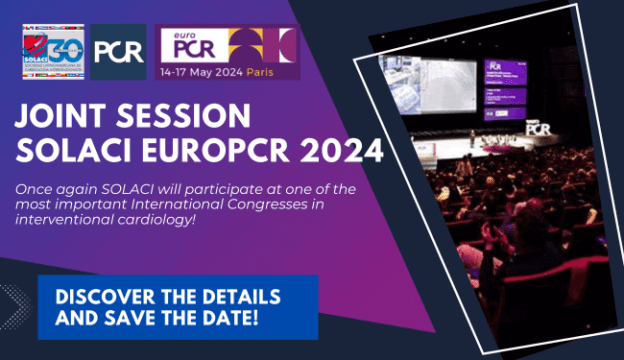Courtesy of Dr. Carlos Fava.
One of the limitations to percutaneous interventions is poor or impossible femoral access. This happens especially in TAVR, with endoprosthesis or ventricular assistance devices, when the transcaval approach with cardiac occluder rises as a viable alternative. We have started to use it in TAVR, but at present there is little information on this access site.

Mean age was 80, most were women, mortality STS was 9.7% and EuroSCORE was 11%.
At one year follow up, 22 patients died, mostly for cardiovascular complications. After 30 days, the most frequent cause for hospitalization was cardiac failure, which was associated with mortality (8 of 12 [75%]; hazard ratio: 13.0; p < 0.001) with no vascular complications.
Read also: Paladin: New Carotid Protection System with Good Results.
83 patients received CT. Only one patient presented vena cava fistula and patent aorta not associated with mortality or hospitalization for cardiac failure (15% if patent vs. 23% if occluded; p= 0.30). There was no vascular injury, Amplatzer migration or fracture.
Conclusion
At one year after transcaval TAVR and closure using permeable nitinol occluders off-label, outcomes are reassuring. There were no major vascular complications and CT showed spontaneous closure of almost all fistulas.
Results may be different in a lower-risk cohort, with increased operator experience, and using a dedicated transcaval closure device.
Courtesy of Dr. Carlos Fava.
Original title: The Fate of Transcaval Access Tracts 12-Month Results of the Prospective NHLBI Transcaval Transcatheter Aortic Valve Replacement Study.
Reference: Robert J. Lederman, et al. J Am Coll Cardiol Intv 2019;12:448–56
Subscribe to our weekly newsletter
Get the latest scientific articles on interventional cardiology
We are interested in your opinion. Please, leave your comments, thoughts, questions, etc., below. They will be most welcome.





